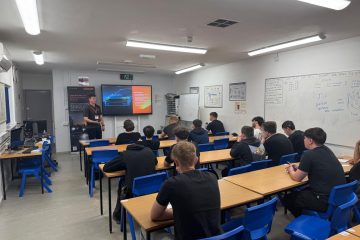There will be a shortfall of 3,000 skilled electric vehicle technicians by 2031 if current training trends continue, according to the Institute of the Motor Industry (IMI).
The latest EV TechSafe certification data shows that 58,800 technicians are now qualified to work on electric vehicles, representing 24% of the UK automotive workforce. However, the growth in qualified technicians is slow, with the gap expected to reach 16,000 by 2035.
With electric vehicle growth continuing in the UK, and uncertainty around the steps the new Labour Government will take to ban sales of new petrol and diesel models, the shortfall suggested by the EV Techsafe report could be a concern to the aftermarket.
Electric vehicle conundrum
Registrations of battery electric vehicles in the UK have slowed in recent months, but still remain high. Since 2020, deliveries of these all-electric models have increased 439.8%, while petrol registrations have decreased by 4.1%.
Plug-in hybrids (PHEVs) have seen growth of 315.8%, and full hybrids have improved by 284.8% since 2020. In the same period, 47.1% of all registrations have featured some form of electrification, meaning there is a real need for technicians to be qualified in their servicing and repair.
The EV Techsafe predicted shortfall by 2031 is also concerning. Since winning the general election in July, the government has not officially confirmed its manifesto pledge to bring the ban on sales of new petrol and diesel models back to 2030. It is also unclear whether the ban will remain the same as previously, allowing hybrids until 2035, or whether it will be zero-emission only at that time.
While this will not affect the aftermarket for some time, the push for carmakers to meet zero-emission mandate targets, alongside a likely increase in sales of Chinese-built battery electric vehicles, due to the UK not implementing import tariffs seen in the EU, means numbers will increase in the coming months.
As fleets are buying more electric vehicle models than the private sector, these will certainly end up in the used-car market within three years, where drivers who cannot afford new, but want to experience an electric vehicle, will likely turn.
Therefore, to futureproof businesses, it is important to have at least one technician skills in electric vehicle maintenance in the coming months and years.
Postcode lottery
The new IMI EV Techsafe data also illustrates the current postcode lottery for EV skills. While London and the South East have the higher proportion of electric vehicle ownership, the regions do not boast the larger proportion of EV certified technicians. Plug-in electric vehicles make up 5.9% of all cars in London and the South East, yet just 6.1% and 6.4% of technicians in London and the South East respectively are EV-trained.
The East of England has the highest rate of EV qualifications (9.5%), while Northern Ireland has the lowest rate (3.7%).
“There has been encouraging growth in the number of technicians gaining EV certification so far in 2024”, explained Kevin Finn, Executive Chair at the IMI. “However, with the expected reinstatement of the 2030 ICE ban deadline by the new government, the skills gap remains. Automotive businesses urgently need to prioritise training more technicians so that the expected rising number of EV owners can find a local Techsafe technician qualified to work safely on their vehicle.”
Green transition problems
Commenting on the EV Techsafe report, Lawrence Whittaker, CEO at Warrantywise, added: “Without enough qualified TechSafe EV technicians, I believe the rapid adoption of electric vehicles could stall, leading to safety risks, delayed repairs, and stunted growth in the EV industry. As demand for electric vehicles surges, the pressure on the industry to train and certify technicians is mounting, making this shortage a critical bottleneck that could undermine the transition to greener transportation.
“That sounds severe, but as our maintenance option for internal combustion engine vehicles continues with our plans for vehicles up to 15 years old, and older with our classic car plans, our aim is to always provide the best levels of service for all our customers. This is why I continue to highlight the issue with EV technicians and emphasise the need to focus on our EV ecosystem.
“The implications of this skills shortage extend far beyond just vehicle maintenance. As electric vehicles become more complex, with advanced software, battery systems, and high-voltage components, the expertise required to service and repair them goes beyond what traditional automotive technicians are trained to handle, hence having to go through a stand-alone TechSafe training.”



